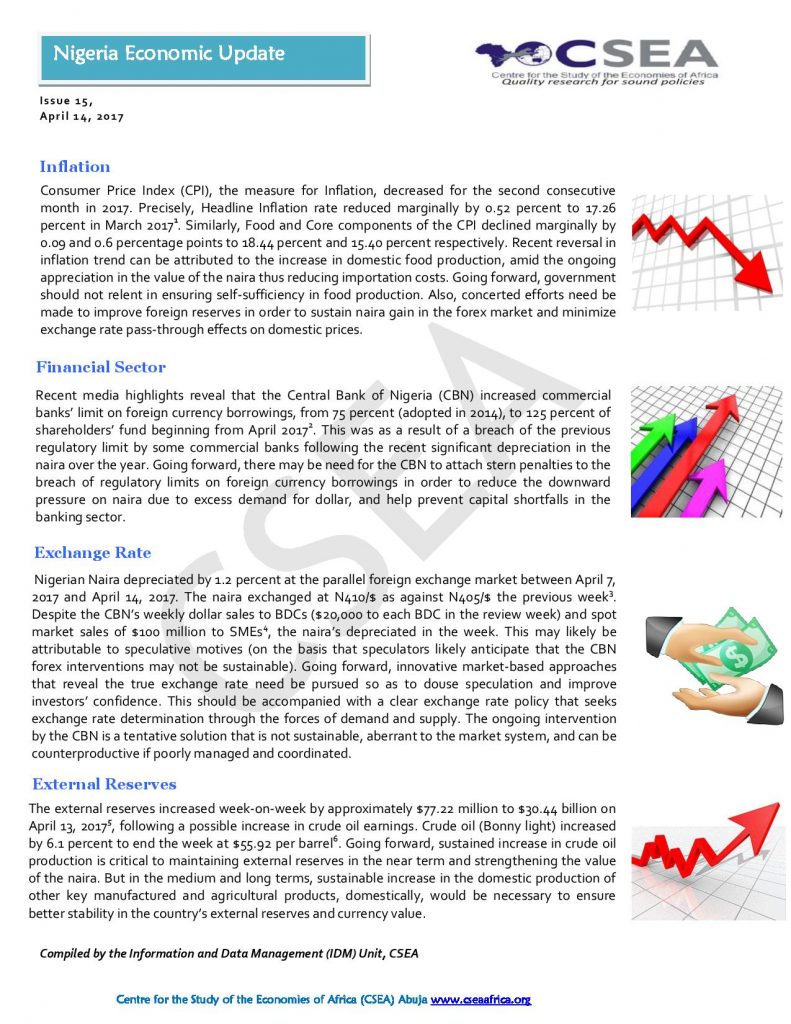Macroeconomic Report & Economic Updates

May 10, 2017
Nigeria Economic Update (Issue 15)
Nigerian
Naira depreciated by 1.2 percent at the parallel foreign exchange market
between April 7, 2017 and April 14, 2017. The naira exchanged at N410/$ as
against N405/$ the previous week. Despite the CBNs weekly dollar
sales to BDCs ($20,000 to each BDC in the review week) and spot market sales of
$100 million to SMEs, the nairas depreciated in the week. This may
likely be attributable to speculative motives (on the basis that speculators
likely anticipate that the CBN forex interventions may not be sustainable).
Related
Nigeria Economic Update (Issue 8)
The falling tide in the international value
of Naira experienced a reversal in the review week with naira appreciating
significantly by 11 percent from N516/$ on February 17, 2017 to N460/$ on
February 24, 2017 at the parallel market the first appreciation
since December 2016. The recent rise in naira value was driven by forex
supply-demand gap closure, sequel to improvements in dollar liquidity. The
recent CBN Special intervention (e.g. the auction and sale of $370 million and
$1.5 million respectively, by the apex bank during the week) and its
revised forex policy guidelinescontributed in dousing speculations
in the parallel market, thus gradually narrowing the margin between the
interbank and parallel market rates. Given that the sustainability of naira
appreciation is strongly hinged on the improvement in foreign reserve which is
largely dependent on crude oil sales, the government should continue its
efforts at calming tensions in the Niger Delta region.
Africa Economic Update (Issue 8)
Economic growth in Africas largest economies improved in the second quarter of 2017 (2017Q2) relative to the preceding quarter (2017 Q1), as Nigeria and South Africa exited recession. Specifically, GDP growth rate was 0.55 percent and 1.1 percent for Nigeria and South Africa in 2017Q2, compared to 0.91 percent and 0.7 percent in 2017Q2, respectively. The increased growth in Nigerias economy was driven by improved performance in the oil sector (increased crude oil price and production) which offset the decrease in non-oil sector growth, while South Africas emergence from recession is supported by growth in its agriculture sector complimented by growth in finance, real estate, business service, mining and quarrying sectors.
